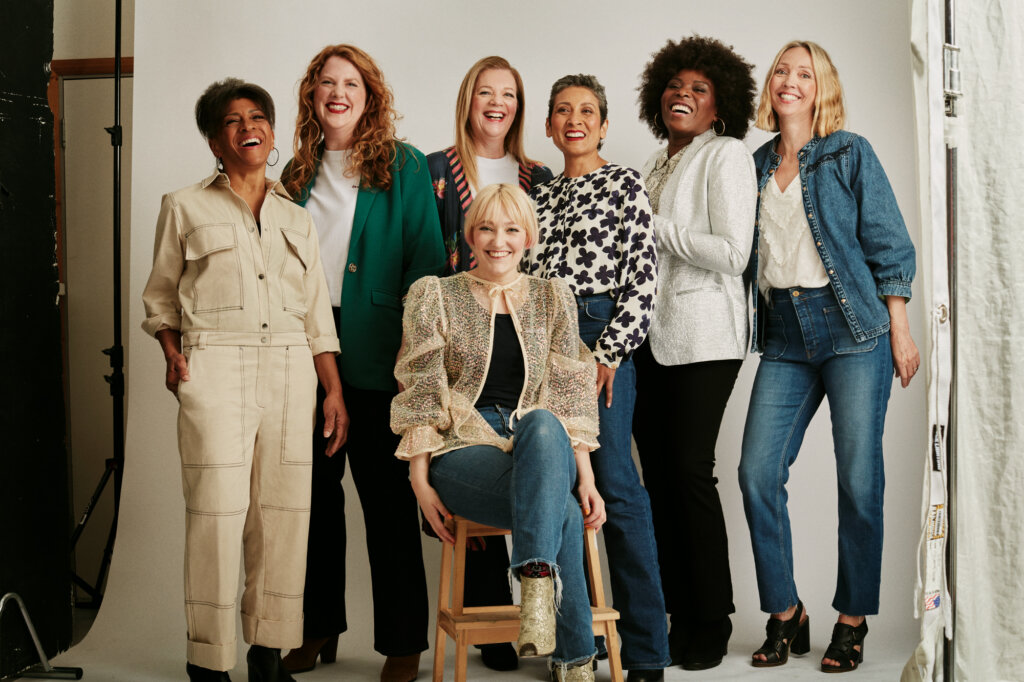
Connection and caring in social context
Feeling close to others and having a sense of belonging are very important for our health and wellbeing.
As women grow older, the way we connect with our friends and community can change. When we retire or have fewer responsibilities for others, we can pick how and with whom we want to spend our free time.
Many of us choose to be with people and activities that make us happiest, and might leave behind those relationships that are less rewarding.

The Vital Conversations report on older women in the community says that being socially connected isn’t just about being active in the community. It’s about feeling like you truly belong. Being socially connected helps us in many ways, like having a safe and comfortable place to live, being financially secure, and able to use technology in our daily lives.
As women grow older, especially after retirement, many of us also do more unpaid caring work for family and others. Historically, women have been thought of as natural caregivers. Even today, many – including women – still think women should care for others as part of their role, and that this is what being a ‘good’ woman means. Our society reinforces this idea in many ways that are often invisible to us but are widespread.
Because of these ideas, women are more likely to work part time or casually, or to not work at all. Women who do work often end up doing jobs that involve care, like teaching or nursing. These jobs often don’t pay as well as more traditionally ‘male’ industries.
Caring for others is usually very rewarding, but it can also be a burden emotionally, physically and socially. We need to remember that women doing the vast majority of caregiving leads to gender inequality. It’s important that both men and women share the role of caring.
Choi NG, Ha JH (2016) Relationships between spouse/partner support and depressive symptoms in older adults: Gender difference. Aging and Mental Health Aging Ment Health 15(3), 307–317.
Ewings SJ (2019) Unique challenges facing older Australian women in the early twenty-first century. The University of Sydney.
Farrugia T, Hewitt A, Bourke-TH, Joosten A (2019) The impact of carer status on participation in healthy activity and self-reported health among Australian women over 50 years. Australian Occupational Therapy Journal. 66(1): 23–32.
Feldman S, Radermacher H (2019) Vital conversations: giving older women in greater Melbourne a voice. Lord Mayor’s Charitable Foundation, Melbourne.
Fuller H, Pikala T, Mullen A (2022). Strengthening late-life family connections. North Dakota State University.
Guven S, Sener A (2010). Family relations in aging. International Journal of Business and Social Science 1(3).
Haslam C, Dane S, Lam BCP, Jetten J, Liu S, Gallois C, et al. (2022) Ageing well in a foreign land: group memberships protect older immigrants’ wellbeing through enabling social support and integration. Ageing And Society. 42(7), 1710-1732.
Lixia Q, Kaspiew R, Carson R, De Maio D, Harvey J, Horsfall B (2021) National elder abuse prevalence study: Final report . Australian Institute of Family Studies.
Luong G, Charles ST, Fingerman KL (2011) Better with age: Social relationships across adulthood. Journal of Social and Personal Relationships 28(1), 9–23.
Mohanty I, Niyonsenga T, Cochrane T. et al. (2020) A multilevel mixed effects analysis of informal carers health in Australia: the role of community participation, social support and trust at small area level. BMC Public Health. 20(1801).
MCWH (2021) Submission into the Inquiry into Support for Older Victorians from refugee and migrant backgrounds. Multicultural Centre for Women’s Health, Melbourne.
Pope ND (2022) Older women caring for others and needing care. Journal of Women and Ageing 34(6), 687-691.
Sharma N, Chakrabarti S, Grover S (2016) Gender differences in caregiving among family - caregivers of people with mental illnesses. National Centre for Biotechnology Information.
Thomas PA, Liu H, Umberson D (2017) Family relationships and well-being. Innovation in Ageing 1(3).





